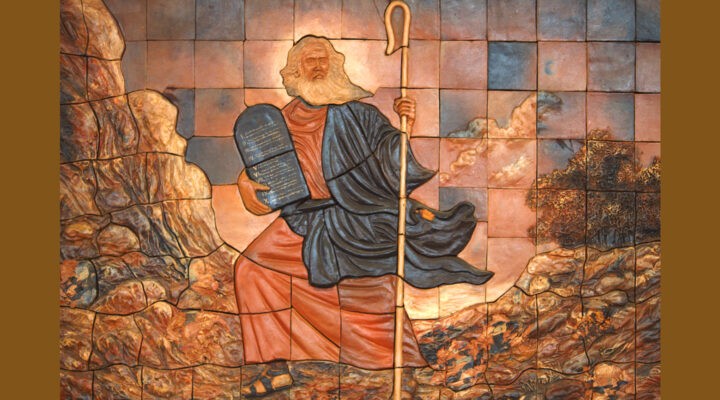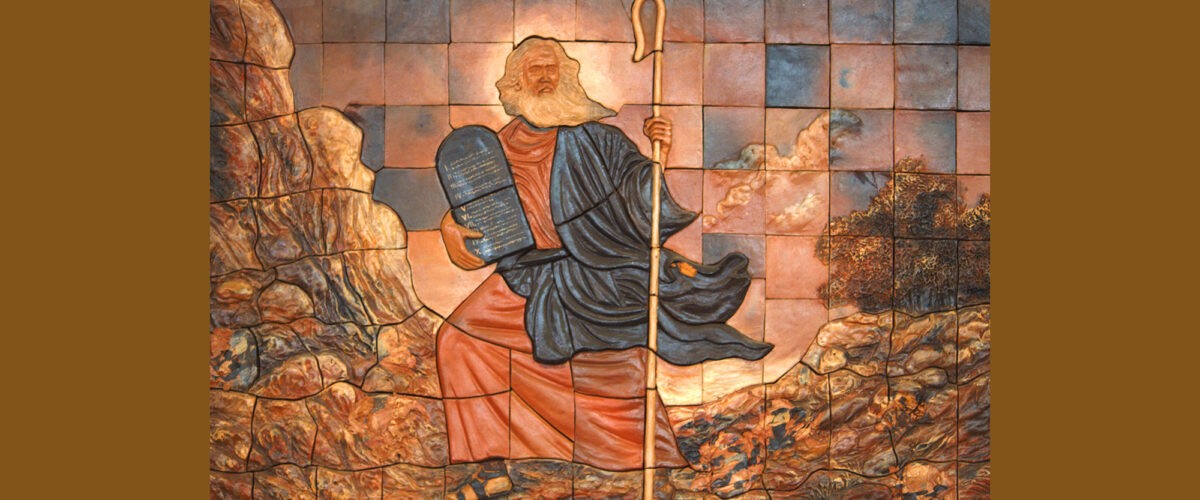Now as much as ever, people across the spectrum of faith must proclaim religious freedom to push back against conservative Christians claiming sole ownership of religion in America, rabbi and author Jill Jacobs said.
“It’s really important that progressive religious leaders — Jewish, Christian, Muslim, Hindu, everybody — really speak up and say that religion belongs to all of us, and nobody gets to define what religious practice or religious belief or religious participation in the political sphere means,” said Jacobs, CEO of T’ruah: The Rabbinic Call for Human Rights.
She joined Interfaith Alliance President Paul Raushenbush for a wide-ranging conversation on faith, social justice and antisemitism on the Nov. 23 edition of the “State of Belief” podcast.
Jewish and other religious leaders must provide a framework to oppose the religious and racial bigotry that is rising in the United States and worldwide, said Jacobs, author of There Shall Be No Needy: Pursuing Social Justice Through Jewish Law and Tradition.
“Unfortunately, in America many of us have ceded the space of religion and politics to a certain far-right element for whom religion and politics is only about banning abortion or banning LGBTQ rights or trans rights or otherwise interfering with people’s bodily autonomy and personal liberty,” she asserted.
Meanwhile, most Jewish texts have little or nothing to say about abortion and gender rights, but instead have much to say about building society together, she added. “It’s very clear that there is a moral way to live with one another, and I think it’s so important that we lift up those aspects. And it has so much to say about the poor, so much about the incarcerated, so much about the immigrant and welcoming the stranger.”
“To hear some people in the Christian right speak, you would think the Bible is basically verse after verse banning abortion, and it’s actually not there.”
Jewish Scriptures place priority on the life of the mother instead of the fetus, Jacobs explained. “That is consistent throughout Jewish law. But to hear some people in the Christian right speak, you would think the Bible is basically verse after verse banning abortion, and it’s actually not there. You have to badly mistranslate a verse to get to a ban on abortion. The Jewish Bible does not outlaw abortion at all.”
And those clamoring for such bans cloak their demands as expressions of religious freedom, Raushenbush said. “When we talk about issues around abortion or LGBTQ rights or the rights of other people, people are very quick to say, ‘Well, my religion says …’ But they ignore Jewish law on these same issues.”
Conservative evangelicals have used the ideology of Christian nationalism to enact nationwide abortion bans and ban books from school libraries. Rightwing theology also is being used in ongoing campaigns to use Bibles in Oklahoma schools and display the Ten Commandments in Louisiana schools.
Raushenbush asked Jacobs to describe the current state of antisemitism, especially given recent FBI statistics showing hate crimes rising in the U.S. “And of course, antisemitism is one of the main foci of the areas of hate crimes, including anti-Muslim Arab hate, anti-Sikh hate.”
Jews have faced antisemitism for more than 2,000 years and especially since Christianity became the religion of the Roman empire, she responded. “Then antisemitism acquired state power and has come up in different times and different places, often drawing on the same group of tropes or ideas: Jews as greedy, all-powerful Jews trying to do horrible things to Christians, Jews as a nefarious force inside society.”
“When times are shaky, it’s very easy to look around and say, ‘Well, who do I blame for my economic woes or for the instability of politics?’”
Jews always are on the losing end in whatever political system they find themselves, she added. “Very famously, Jews get blamed both for being Bolsheviks and for being capitalists. It’s a very convenient kind of hatred. And it tends to rise in times of social, political, economic upheaval. So, when times are shaky, it’s very easy to look around and say, ‘Well, who do I blame for my economic woes or for the instability of politics?’”
During the 2024 presidential campaign, candidate Donald Trump said “the Jewish people” would have been partly responsible if he had lost the November election.
The war between Hamas and Israel has helped fuel the flames of antisemitism and hate crimes in the U.S., she explained. “Crucial for this moment is how to know when it’s criticism of Israel and when it’s antisemitism.”
It is right to hold Israel, as a nation, accountable for its human rights record, she said. “And sometimes criticism of Israel does cross the line into antisemitism, which we have seen absolutely this year, including with justifications of violence against Jews and with attempts to ban Jews who don’t disavow Israel.”
Many mistakenly underestimate the danger of antisemitism, believing it to be a solely Jewish problem or one that some Jews believe they can handle on their own. Nor do they see its negative effects on political stability, Jacobs said.
“Antisemitism is often the canary in the coal mine to destroying democracy. We see in places like Hungary where autocratic leaders can use antisemitism as a way of slowly attacking democracy. And if we look at today with this Great Replacement Theory, which is an antisemitic idea that somehow Jews are behind all of the immigration that is happening, we see this popping up in a lot of the mass shootings that are happening.”
Related articles:
Heritage Foundation’s antisemitism effort ignores Jewish groups
Concerned about antisemitism? Look at Donald Trump’s record, House member says
As antisemitism and Islamophobia skyrocket, the effects ripple through politics



